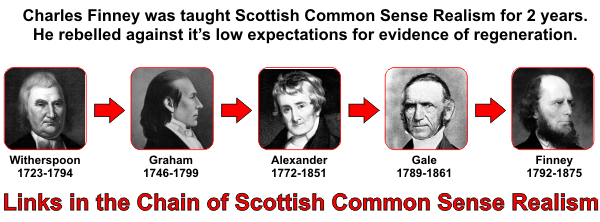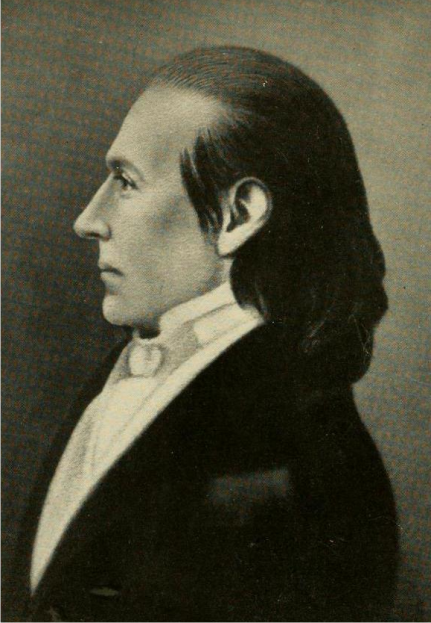How William Graham
Relates to
the
Heresy of
Decisional Regeneration
![]()

![]()

William Graham (1746-1799), more than any other individual, can be credited (or blamed) for the theology of Archibald Alexander. Graham was born in 1746 into a devout Prebyterian home in Pennsylvania. Graham became serious about religion at age 21, but did not experience regeneration with the "religious affections" touted in the First Great Awakening by American New Light Calvinists. He entered the College of New Jersey (Princeton) two years later, and was greatly influenced by John Witherspoon's Scottish Common Sense Realism, which promoted "truth impression", or moral persuasion of the Word of God as evidence of regeneration, and ridiculed "religious affections" as merely "natural sympathy". John Witherspoon taught him philosophy of the mind and moral philosophy. At this moment in history, educated, cultured, "self-made" men taught that science held the answer to man's condition. Spirituality was seen as the way the ancients explained natural causation. Demons, angels and the activity of the Holy Spirit were seen as figurative elements of an outmoded worldview. Regeneration was by the Holy Spirit, but not in an immediate, direct causation way. The supernatural was relegated to metaphysical forces which were expressed in legal (forensic) ways. Witherspoon taught Graham there were difficulties in moral philosophy which could not be solved with the present state of human knowledge, but he felt that the time would come and probably not too far in the future when these difficulties would be removed and there would be as much certainty and insight in moral as in natural philosophy.
"At this, William felt his heart burn within him and hoped that he might live to see that day when he would he able to understand and explain the difficulties that were so great in this subject. By this and other statements of Witherspoon, he was encouraged to study this subject and in later years 'the science which engaged his attention more than all others, except theology, was the philosophy of the mind' or moral philosophy. Whereas Witherspoon considered it as a companion study to theology, he (Graham) would look upon it as an introductlon to the study of theology. The teaching of Witherspoon not only Inspired Graham to study and learn moral philosophy but it also cultivated within him other principles and concepts of the Common Sense or Scottish Realism philosophy". He taught Scottish Common Sense Realism to Archibald Alexander and Samuel Wilson (1782-1869) in their formative years. After graduation, Graham taught at Augusta Academy in Virginia. In 1775, he was licensed to preach as a Presbyterian minister. He married Mary Kerr in 1776. Graham encouraged men to fight the British for independence, and even enlisted himself to inspire recruits. Graham is remembered in political history as the only Presbyterian minister of note to stand with the anti-Federalists and appose the constitution because it took too much power from the states. Although Graham was an evangelistic New Light Calvinist, he made few converts before the Blue Ridge, Virginia revival of 1789. In that revival, " His tone was evangelistic, and he seemed to pour forth the gospel truth like floods of milk and wine and many . . in the group were moved to tears. When asked by a young member of the Briery congregation how long it had taken him to compose this sermon, Graham responded, "About twenty years". |
I am indebted to Robert Goggin Gillespie for much of the information on this page. It was copied from http://scholarship.richmond.edu/cgi/viewcontent.cgi?article=1306&context=masters-theses |